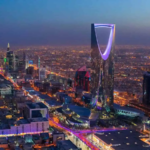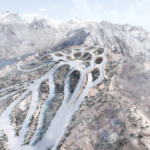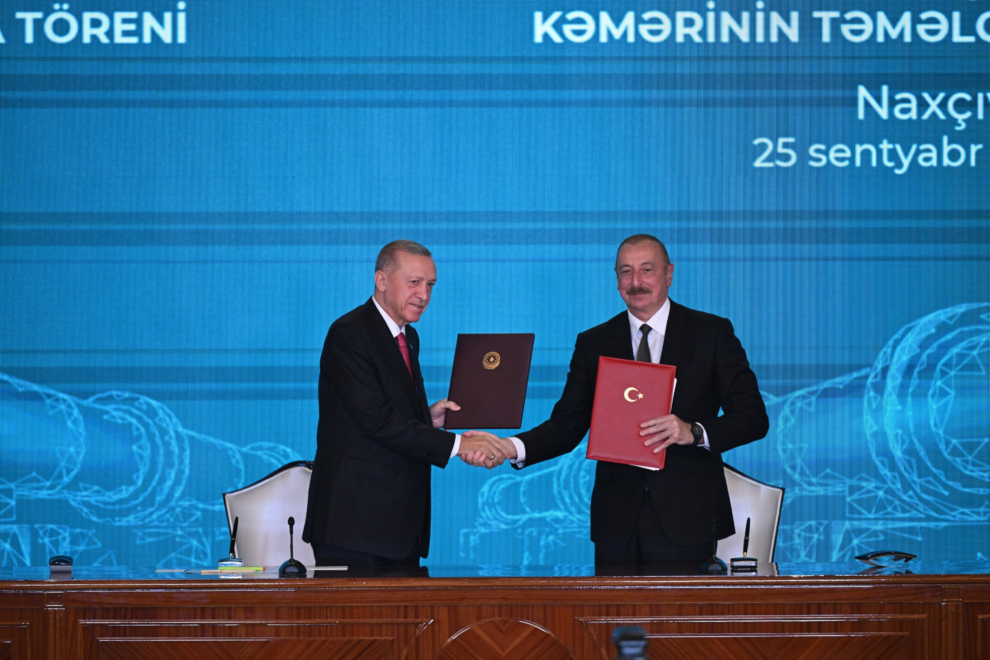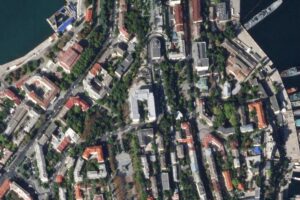President Recep Tayyip Erdoğan and his Azerbaijani counterpart Ilham Aliyev attended the groundbreaking ceremony Monday for a new natural gas pipeline that will run from Türkiye’s eastern province of Iğdir to Sederek in western Azerbaijan.
The new 85-kilometer (53-mile) gas pipeline will run from the country’s easternmost province of Iğdır to Sederek in western Azerbaijan, with an annual capacity of 500 million cubic meters (mcm) and a daily capacity of 1.5 mcm, according to Anadolu Agency (AA) reports.
The project will be realized through a partnership between Türkiye’s crude oil and natural gas pipeline trading company BOTAŞ and Azerbaijan’s state oil company SOCAR.
The Azerbaijani president, in his speech, highlighted the importance of the project, recalling that Nakchivan stayed deprived of gas for some 15 years before it inked an agreement with Iran for supply.
The strategic territory does not share a border with Azerbaijan but has been tied to Baku since the 1920s – and is located between Armenia, Türkiye and Iran.
Regarding the cooperation with Türkiye in different sectors, including energy, Aliyev noted that trade volume between the two countries extended the figure of $6 billion (TL 163 billion).
“It increased by 40% this year. We have placed the target of $15 billion. We will reach this in the near future,” he noted.
President Erdoğan, for his part, noted that Nakhchivan nowadays carries excellent potential in economy, transportation, and energy lines.
“With the establishment of regional transportation lines, we will have the opportunity to fully realize this potential,” he said.
“(The Iğdır-Nakhchivan Natural Gas Line) will deepen our partnership with Azerbaijan in the field of energy and will also contribute to Europe’s energy supply security,” the president further noted.
A total of three agreements were signed between Azerbaijan and Türkiye during the one-day official state visit, as per AA reports.
President Erdoğan and his counterpart Aliyev signed the “Protocol of Intent between the Republic of Türkiye and the Republic of Azerbaijan on the Kars-Nakhchivan Railway Project.”
Meanwhile, Türkiye’s Minister of Environment, Urbanization and Climate Change Mehmet Özhaseki and Chairperson of the Azerbaijan City Planning and Architecture State Committee Anar Guliyev inked an agreement between two governments on the “Construction of Residential Buildings, Primary Schools, Kindergartens and Cultural Centers in the Kahramanmaraş Province of the Republic of Türkiye.”
The two countries also signed an agreement that includes the continuation of the existing cooperation on electrical energy.
“Besides the Kars-Nakhchivan Railway Project, agreements on mass housing and electrical energy have just been signed. Thus, we reaffirmed our will to develop our relations in the fields of transportation, logistics, and energy,” Erdoğan noted.
President Erdoğan visited the Nakhchivan exclave upon the invitation of Aliyev following last week’s counterterrorism operation conducted against illegal Armenian forces in the Karabakh region.
Erdoğan, on his visit, among other officials, was accompanied by Foreign Minister Hakan Fidan, Defense Minister Yaşar Güler, Minister of Energy and Natural Resources Alparslan Bayraktar, Minister of Environment, Urbanization and Climate Change Özhaseki, Transport and Infrastructure Minister Abdulkadir Uraloğlu, Trade Minister Ömer Bolat and MIT head Ibrahim Kalın.
The Türkiye-Nakhchivan natural gas pipeline stretching from Iğdır to Azerbaijan’s exclave is one of the latest examples of broader energy cooperation between Ankara and Baku.
The memorandum of understanding on natural gas supply to the Nakhchivan Autonomous Republic was signed between then-Energy and Natural Resources Minister Fatih Dönmez and his Azerbaijani counterpart Parviz Shahbazov at the end of 2020.
In recent years, Türkiye has invested heavily in its energy infrastructure to become a transit hub and energy hub in the medium term.
Source : DailySabah




































